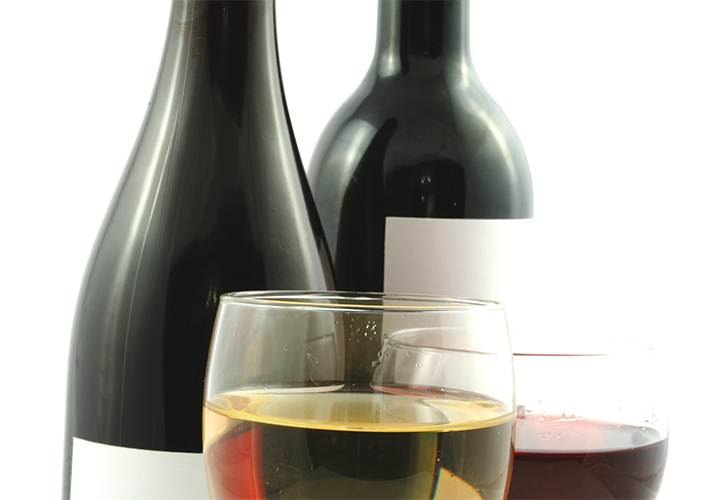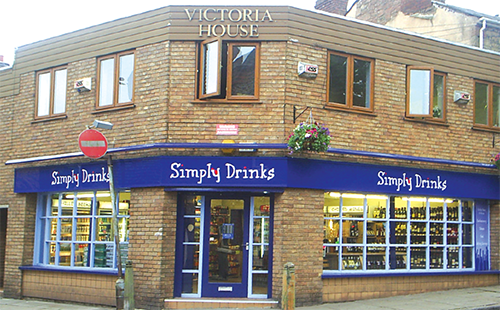
Wine Cellar Ltd
Licence to trade
Wine Cellar Ltd has risen from the ashes and is now making its mark in the off licence industry
The company, Cellar Five Ltd came to the end of its days in December 2002, only to be rescued and given a new lease of life by Wine Cellar Ltd. With Cellar Five in receivership, Wine Cellar Ltd acquired all the assets as well as the brands of the business. Paul Gaskell, the managing director and a key member of the team behind the success of Wine Cellar Ltd gives an insight into Cellar Five when it was acquired: “The business was quite run down as you might expect and the morale of the people was very low as a consequence. The assets had seen underinvestment for a number of years and, because the business had been in receivership for three months, it had very little stock in its stores as well. And when we came in, the logistics service provider had walked away. So as you can imagine, we had a fairly broken business in our hands to fix.
“The very first task was to restructure the head office of the business, reducing the number of people working in that office from about 120 to approximately 55. We also conducted an overall review of all the stores we had in the portfolio and made a conscious decision that, out of the 330 stores, we probably needed to close 80 of them because we knew that no matter what we did, they would never be profitable. Subsequently, we knew we had to reinvent a new supply chain because, needless to say, our priority was to get stocks into the stores.”
He continues: “There were two existing brands in the business – Booze Buster, which was an off licence store with a strong mix of beers and cigarettes; whereas the Wine Cellar brand was a more upmarket wine store. We later reviewed the appropriateness of the existing two brands in today’s marketplace and  decided that we didn’t really want to be in the upmarket wine business but instead we were predominantly going to be a mainstream off licence business. The 45 branded Wine Cellar stores were subsequently sold to Oddbins, enabling us to refocus the business on the off licence trade and further develop two additional brands to sit alongside the Booze Buster brand.
decided that we didn’t really want to be in the upmarket wine business but instead we were predominantly going to be a mainstream off licence business. The 45 branded Wine Cellar stores were subsequently sold to Oddbins, enabling us to refocus the business on the off licence trade and further develop two additional brands to sit alongside the Booze Buster brand.
“The first is Simply Drinks – a more upmarket off licence brand but not at the very high end, which was where Wine Cellar was. We refer to the Simply Drinks concept as a community store but with a softer feel to it than that of Booze Buster and this concept appeals to women even more so. The second brand introduced is called Simply Food & Drinks. This tends to be a small community convenience store, typically between 800 to 1200sq ft, which has an excellent drinks offering – quite similar to what you’d find in Simply Drinks, with the addition of a micro convenience grocery offering. So today, we own two off licence and one convenience store brand.”
With 135 Booze Buster stores spread across England and Wales, this brand is by far the biggest contributor to Wine Cellar Ltd. However, Simply Food & Drinks with 20 stores and Simply Drinks with 30 stores are the fastest growing. Paul comments: “Our plans are to expand all three brands, looking into opportunities of expanding into Southern England but we are also keen to expand into Scotland. However the last three years has really been about restructuring and refocusing the business and we are only just turning our attention on to the growth potential for these brands. We haven’t set ourselves any specific target as such but the aim is principally to add as many stores as we can. We have opened in four new locations over the past 12 months. The only aspect holding us back is that we have to find the right locations and that can potentially take time. Even though the aim is to open independent stores, we are also interested in the possibility of operating any one of the concepts within another outlet and are currently in the midst of a test with the Booze Buster brand in Martin McColl tores. It’s too early to reveal anything more but, as they say, watch this space.”
Continuing, Paul highlights the company’s unique supply chain system, which gives it that added edge in the industry: “When we took over the business, we had a blank sheet of paper for our logistics operation and that meant that we were able to start from scratch and design exactly what we wanted. After much discussion with a number of wholesalers in the UK, we settled on a new and unique supply chain system.”
He explains: “Most off licence retailers will have a warehouse that somebody operates but they own all of the stock in it. Unlike these stores, we are currently in partnership with one of the major wholesalers in the UK – Palmer & Harvey McLean – who not only operates the warehouse on our behalf, but also owns all the stock until the point at which it is despatched to our stores. Another factor that makes this arrangement unique is that we do all the negotiation ourselves with key suppliers, for example Bavaria Beers, Pernod-Ricard and Coca Cola.
“This partnership has been very successful and one major hallmark of this success is that our in-store availability of cigarettes is the best in the country. Approximately 99 to 100 per cent of the cigarettes that are ordered arrive into the stores and it’s about 97 to 98 per cent for alcohol – so this has been a real success story. This supply chain has also enabled us to ensure that all the products in our stores are automatically replenished, which means our store managers don’t have to make the decision of what stock is required.”
Moving on, Paul outlines the current condition of the market: “The off licence sector has been an extremely tough industry over the last ten years and the reason for this is down to the supermarkets taking up increasing amounts of share of the trade in the UK. But what has happened recently is that we have seen more and more people coming back to the high street for the convenience aspect and that has certainly been helping the off licence trade. Now that major restructuring has taken place in the trade, I believe the stronger off licence retailers will be moving forward in a more dominant way. However, there is still a major issue in the marketplace – at key trading times, like Christmas. Easter or even major events like the World Cup, the big supermarkets sell their beers well below cost price and we not only think it’s wrong, but also believe it’s quite irresponsible of them to do so.”
He adds: “There is a major concern for the drink culture in the UK, which is why we wouldn’t dream of selling below cost because we just don’t think it’s responsible retailing. Another factor is that I think every retailer in the UK that sells alcohol should adopt the Challenge 21 principle. This basically means that if the buyer doesn’t look 21 years of age, then you should request to see some form of ID to prove otherwise. In saying that, we should also ensure not to impinge on the consumer’s right to buy and consume alcohol moderately. Sometimes what can happen is, in trying to stop the under 21s buying alcohol, we potentially stop people who are legitimately trying to purchase it. However, we are absolutely committed to making sure we do everything we possibly can to avoid selling alcohol to people who are under the legal age, so much so that we were highly commended last year by Off Licence News magazine for our responsible retailing.”
With thoughts on the future, Paul concludes: “We have come a long way with this business and are already beginning to break even. We are currently turning over £60 million and I can see us hitting the £70 million mark very quickly. We’re certainly not setting ourselves any dramatic targets but we’re actively seeking new sites to expand the number of stores in our portfolio. I’m confident that we will be a healthy and profitable business over the next couple of years.”